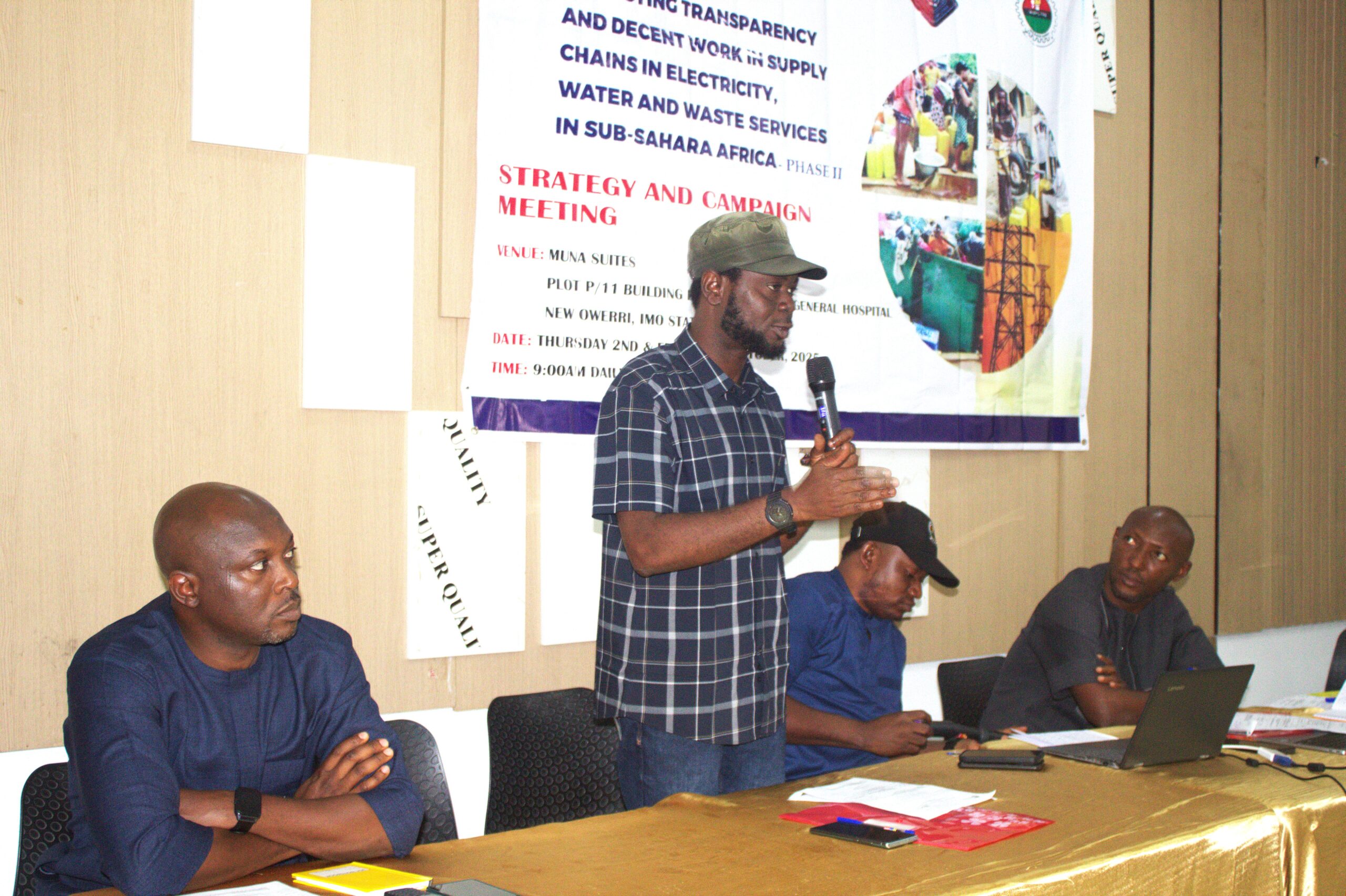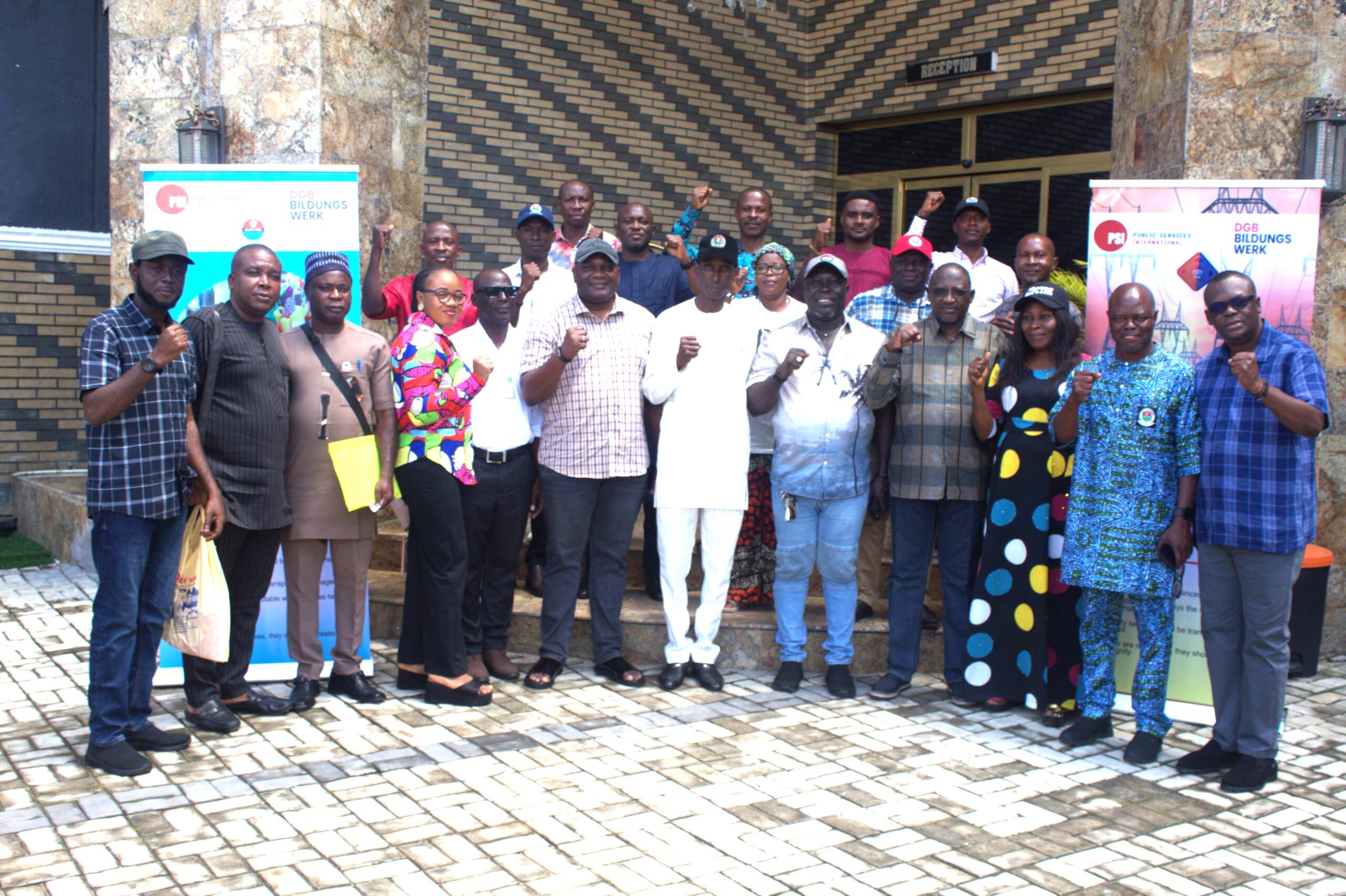By Bunmi Yekini

Trade unions and civil society groups have called for urgent reforms in Nigeria’s electricity, water, and waste sectors, demanding transparency, improved working conditions, and a reversal of failed privatization policies.
The call came during a two-day Campaign and Strategy Meeting hosted in Owerri by Public Service International (PSI) and DGB, in collaboration with the National Union of Electricity Employees (NUEE), the Amalgamated Union of Public Corporations, Civil Service Technical and Recreational Services Employees (AUPCTRE), and other civil society organisations.
Speaking at the opening, Comrade Abiodun Bakare, National Coordinator of the project, said the initiative has already recorded successes, citing how pressure from trade unions and civil society partners stalled Lagos State’s water privatization plans.
“This project has made tremendous impact on the trade unions and civil society partners, especially in Lagos where the government’s attempt to privatize water was halted,” Bakare noted.
In his remarks, AUPCTRE Acting General Secretary, Comrade Lawrence Alo, stressed the importance of workers’ welfare.
“Poor staff welfare and lack of protective equipment make workers highly vulnerable. Government must prioritise workers if we want these sectors to function effectively,” Alo said.

NUEE General Secretary, Comrade Dominic Igwebike, added that the electricity sector’s privatization in 2013 has failed Nigerians.
“Ten years on, power generation is still hovering around 4,000 megawatts. The promised adequate and uninterrupted supply never came. Instead, Nigerians face higher costs and poorer service,” he lamented.
Civil society representative, Comrade Sani Baba, Executive Director of Citizens Free Service Forum (CFSF), highlighted the risks of privatization across Africa.
“Privatization has pushed costs onto the people while failing to deliver quality service. It is time to rethink these policies and place people before profit,” Baba said.
During deliberations, participants painted a grim picture of Nigeria’s public utilities:
- Water sector: dilapidated schemes, obsolete pipelines leading to contamination, and epileptic production caused by erratic electricity supply.
- Electricity sector: failed privatization, high tariffs, and lack of fresh investment by private operators.
- Waste sector: inadequate dumpsites, poor union rights, and unsafe working conditions.
The meeting concluded with strong demands for government action, including the rehabilitation of water schemes, stable power supply, reversal of electricity privatization, tariff review, creation of more landfill sites, and recognition of workers’ rights to unionise.
Participants also stressed the need for continuous training of utility workers and stronger advocacy campaigns to pressure policymakers.
